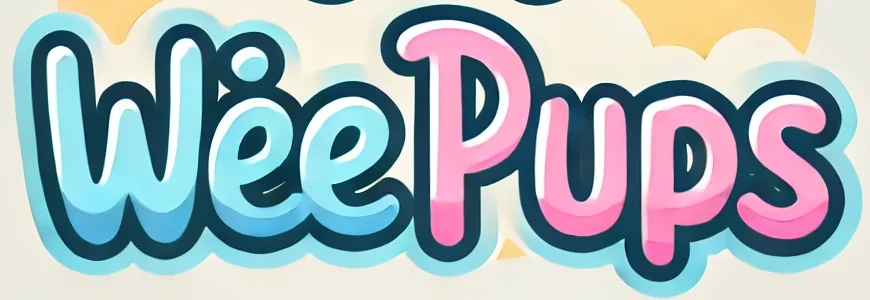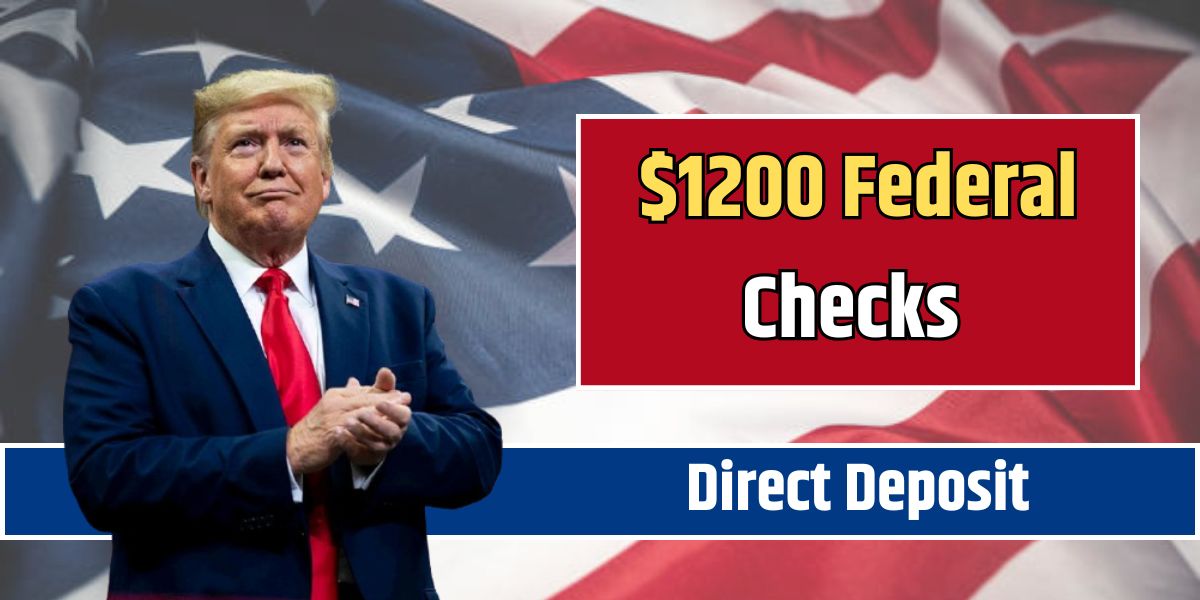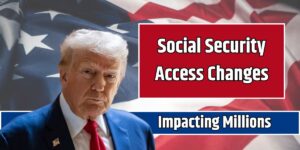The prospect of $1,200 federal checks being issued to Americans as direct financial relief has generated significant attention, particularly as economic challenges persist. While no official confirmation of these payments has been made, the potential program would target those most affected by rising living costs and provide critical support to low- and middle-income families. Here’s what we know about the rumored payments, eligibility criteria, and potential timelines.
The $1,200 Federal Checks: Background and Purpose
The economic hardships brought on by the COVID-19 pandemic, coupled with persistent inflation, have left many Americans struggling to make ends meet. While previous stimulus efforts, such as the CARES Act and American Rescue Plan, provided substantial relief, ongoing challenges have fueled discussions about additional assistance. The rumored $1,200 payments aim to address these economic pressures, offering a lifeline to millions of households.
Eligibility Criteria for the $1,200 Federal Checks
If approved, these payments are expected to follow strict eligibility guidelines to ensure aid reaches those in need. Key criteria include:
1. U.S. Citizenship
Only permanent U.S. citizens will qualify for the payments. Non-citizens are excluded from this program.
2. Income Limits
Eligibility will likely depend on income thresholds, ensuring the funds are targeted toward low- and middle-income earners:
- Single Filers: Annual income up to $75,000.
- Married Filers (Joint): Combined income up to $150,000.
3. Dependents
Additional payments may be provided for dependents, helping families with children or other dependents offset living costs.
4. Seniors and Social Security Recipients
Individuals receiving Social Security benefits, such as SSI or SSDI, and seniors aged 65 and older are expected to qualify.
5. Valid Social Security Number (SSN)
Recipients must have a valid SSN to apply and receive payments.
Expected Timeline for Payments
Though no official timeline has been released, past stimulus rollouts provide a rough estimate of how and when payments might be distributed if approved:
| Payment Round | Expected Timeline | Notes |
|---|---|---|
| Round 1 | Late October 2024 | Direct deposits for those with updated IRS details. |
| Round 2 | November 2024 | Paper checks mailed to those who prefer physical payments. |
| Round 3 | December 2024 | Final round for those correcting errors or submitting late information. |
These dates are speculative and subject to change pending federal approval.
Distribution Methods
Payments would likely be distributed in two ways:
- Direct Deposits: This method is faster and prioritized for individuals with banking information already on file with the IRS.
- Paper Checks: For recipients without direct deposit information, paper checks would be mailed, though this process typically takes longer.
Tracking Your Payment (If Approved)
If the program is confirmed, recipients can use the IRS GetMyPayment tool to track their payment status. The tool provides:
- Payment Status: Confirming whether the payment has been issued.
- Payment Method: Indicating whether it’s a direct deposit or paper check.
- Required Updates: Highlighting errors or missing information that need correction.
Recipients need to provide their Social Security Number, date of birth, and address to access their payment information.
Why Approval Remains Uncertain
Although the $1,200 federal checks could offer much-needed relief, no official approval has been granted by the IRS or federal government. Factors influencing the uncertainty include:
- Economic Conditions: The current unemployment rate (4.1%) and economic growth metrics suggest a less urgent need for direct payments compared to the pandemic era.
- Inflation Concerns: Critics argue that previous stimulus efforts contributed to inflation, which peaked at 9.1% in June 2022. Policymakers may hesitate to risk further inflationary pressures.
- Political Landscape: With Republican control in Congress, the focus is on curbing federal spending and addressing inflation, making additional stimulus measures less likely.
Preparing for Potential Payments
Even without official confirmation, individuals can take steps to prepare in case these payments are approved:
- Update IRS Information: Ensure your banking and personal details are current to avoid delays.
- Monitor Official Announcements: Rely on credible sources, such as the IRS website, for updates on federal aid programs.
- Avoid Scams: Be cautious of fraudulent claims or scams related to unverified stimulus programs.
FAQs
Are $1,200 federal checks confirmed?
No, as of now, the IRS and federal government have not confirmed the approval of these payments.
Who is eligible for the rumored payments?
If approved, eligibility would likely include U.S. citizens meeting specific income limits, Social Security recipients, and individuals with dependents.
How will the payments be distributed?
Payments would likely be sent via direct deposit or paper check, depending on the recipient’s preferences and IRS records.
Can I track my payment status?
If the program is approved, the IRS GetMyPayment tool would allow recipients to track payment status, method, and timeline.
Will these payments contribute to inflation?
Some policymakers argue that additional direct payments could exacerbate inflation, making their approval less likely.




